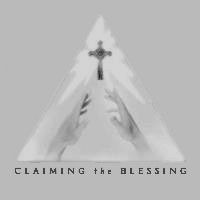 "But you haven't 'done the theology,'" is a sometimes-argument against moving ahead with offering the church's blesssing to the already-blessed-by-God relationships of gay and lesbian couples.
"But you haven't 'done the theology,'" is a sometimes-argument against moving ahead with offering the church's blesssing to the already-blessed-by-God relationships of gay and lesbian couples.Well, here's the start Claiming the Blessing made in the theology statement published in 2003. By all means, let the church continue the conversation on the theology in Columbus and beyond -- but let's challenge those who contend it "hasn't been done."
======================
“BLESSING” is perhaps the most controversial word in the church’s consideration of the treatment of same-sex households in its midst. Because of this fact, we must take great care to be precise about what we mean when we use the word.
The following are the building blocks for a theology of blessing: Creation, Covenant, Grace and Sacrament. Creation itself is the fundamental act of blessing. Creation is a blessing (gift) to humankind from God and humankind blesses (gives thanks to or praises) God in return.
The Hebrew word for “blessing,” barak, means at its core the awesome power of life itself. A fundamental claim of the Bible in regard to creation is that there is enough, in fact an abundance, of creation, and therefore of blessing, to go around.
“Blessing” is a covenantal, relational word. It describes the results of the hallowed, right, just relationship between God and humankind. Blessing is what happens when God and humankind live in covenant. It is important to remember here that the relationships between human beings and the relationship between God and human beings cannot be separated.
“Blessing” and “justice”are inseparable biblical concepts.
When we ask for God’s blessing, we are asking for God’s presence and favor. In Christian terms this favor is what we call “grace,” God’s disposition toward us that is not dependent upon our merit, but is a sure and certain gift to the believer in the life, death and resurrection of Jesus Christ.
In our tradition, the sacraments are the primary ways the grace/blessing of God is communicated to us (“a sure and certain means,” BCP, p. 857).
The two “great” sacraments “given by Christ” (BCP, p. 858) are Baptism and Eucharist. In them we see the two fundamental aspects of blessing: the blessing of life from God and the blessing of God for that life.
Five other rites are traditionally known as sacraments, but they are dependent for their meaning on the two sacraments and are not “necessary for all persons.” A whole host of other actions in the life of the church, and of individual Christians, are “sacramental” in nature, i.e., they mediate the grace/blessing of God and cause us to give thanks and praise/blessing to God.
In our tradition, priests and bishops have the authority to pronounce God’s blessing within
the community of faith.
They do so not by their own power, but as instruments of the grace (blessing) of God within the church. Their authority to bless, too, finds its meaning in the two great sacraments.
When the church chooses “to bless” something it is declaring that this particular person or persons or thing is a gift/blessing from God and his/her/its/their purpose is to live in (or, in the case of things, to assist in) covenanted relationship with God (and with all creation), i.e., to bless God in return.
To bless the relationship between two men or two women is to do this very thing: to declare that this relationship is a blessing from God and that its purpose is to bless God, both within the context of the community of faith. If the church believes that same-sex relationships show forth God’s blessing when they are lived in fidelity, mutuality and unconditional love, then this blessing must be owned and celebrated and supported in the community of faith.
Just what are we blessing when we bless a same-sex relationship?
We are blessing the persons in relationship to one another and the world in which they live. We are blessing the ongoing promise of fidelity and mutuality. We are neither blessing orientation or “lifestyle,” nor blessing particular sexual behaviors. “Orientation” and “lifestyle” are theoretical constructs that cannot possibly be descriptive of any couple’s commitment to one another. And every couple works out their own sexual behaviors that sustain and enhance their commitment. We don’t prescribe that behavior, whether the couple is heterosexual or homosexual, except to say that it must be within the context of mutuality and fidelity.
Isn’t marriage and same-sex blessing the same thing?
That they are similar is obvious, as is taking monastic vows, i.e., blessing a vocation to (among other things) celibacy. Each (marriage, blessing unions, monastic vows) grounds a relationship that includes sexual expression in public covenant which gives them “a reality not dependent on the contingent thoughts and feelings of the people involved” and “a certain freedom to ‘take time’ to mature and become as profoundly nurturing as they can” (Rowan Williams, “The Body’s Grace,” in Our Selves, Our Souls and Bodies, Charles Hefling, ed.).
The question remains as to whether “marriage” is appropriately defined as the covenant relationship between a man and a woman only, as is the church’s long tradition. The church must continue to wrestle with this issue.
To wait until it is solved, however, in order to celebrate the blessing of a faithful same-sex relationship is pastorally irresponsible and theologically unnecessary.
No comments:
Post a Comment